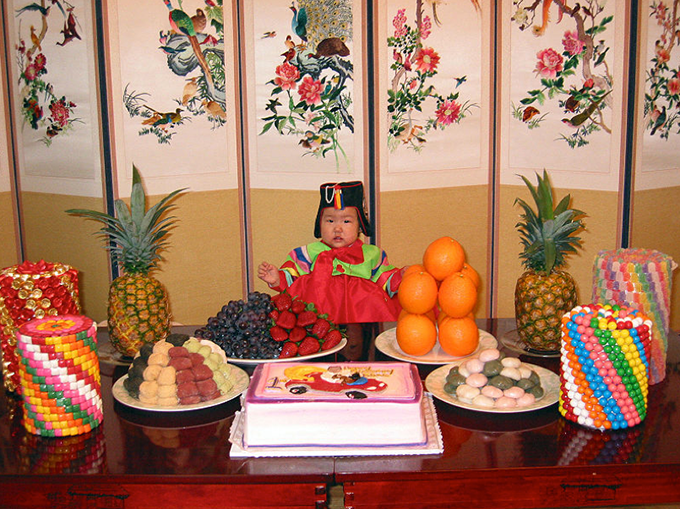In Korea, a time-honored national custom, dating from times of old, is to hold a gala celebration on a child’s first birthday. In Korean, this tradition is known as dol janchi. The use of dol is taken from the word dolda (meaning “one full cycle of the seasons”). In the distant past, when medical science had yet to functionally develop, small children would often fall gravely ill or even die with a year or so after they were born.
Surviving to the age of one, therefore, tended to pose a stiff challenge. The dol janchi ritual was thus used to celebrate the arrival of the first birthday for children who made it through that challenging initial year. Prayers were likewise offered for the redoubled health and growth of the youngsters over the years to come as well.

The conventional format for dol janchi occasions was to invite large numbers of relatives and others to whom the family felt thankful and indebted for the health of their child, for a festive gathering. In more recent years, however, the general approach has been to limit such events to immediate family. The term Doljabi, meanwhile, refers to a special activity held as one part of the dol janchi milestone occasion also existing as a treasured practice from ancient times. This is a variation on fortune telling, in which implements symbolizing different types of occupations are lined up in front of the toddler. Expressing interest in a certain item supposedly suggests what career or future the child will follow. Choosing money, for example, means becoming rich, while taking interest in a baseball glove points to future skills in that sport. In the same way, selecting books, pencils or other reading and writing materials is considered a sign that the child is smart (and may become a lawyer or enter other learned professions).